Harvard Divinity School
Interview with Katherine Pater, 3rd Year Master of Divinity Student
 View and print as PDF.
View and print as PDF.
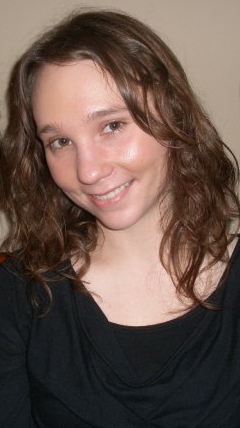
On April 24, 2012, I interviewed Katherine Pater, a third-year Master of Divinity student at Harvard Divinity School (HDS), pursuing ordination within the Presbyterian Church (U.S.A.). She describes students pursuing justice and other interests from within their many separated silos, but recently brought together under the banner of the Occupy movement—brought together not primarily because of ‘issues’ but because of relationships and the desire for community. She closes her interview with a story of the night before Occupy Boston was shut down, a night when she realized just how profoundly she and her friends were changing.
What justice issues are of deepest concern to the students and staff of HDS?
We are a multi-religious school, and, along with that diversity, we have a ridiculous diversity of justice interests. There’s Outdoor Church, an organization we are connected to by via the Office of Religious and Spiritual Life, concerned with providing ministry and food to the homeless. Economic justice is big: student debt, people involved with the Occupy movement. Feminist causes—we have a group called Catholic Renewal primarily concerned with justice for women in the Roman Catholic Church. Prison systems in the U.S. Eco-justice: we have a community garden and compostable dishware at all events, making for a very environmentally friendly campus. We have a Queer Rights group. Really, we have the entire range of whatever you can imagine.
Among those many causes, what are you passionate about?
I’ve served a homeless shelter in the Cambridge area. I’m passionate about causes of poverty, the economic inequalities that lead to homelessness. Parish ministry in an urban context, that’s what I’m passionate about: the church meeting the needs of its local community. Our church has a food pantry and a children’s arts and theater program, exposing children to the arts, children who might not otherwise have the opportunity. And this isn’t traditional justice by any means, but I think it’s important for the church to get to know the people in its community, to know their needs, to build relationship. The real work of humanizing each other… that’s where justice starts.
What other kinds of organizing are taking place on campus?
If there is one flaw at HDS, it’s that we all do our own thing, almost to a fault. I mean, most students are all involved in something. People are doing everything you can possibly imagine. But we’re not always connected. One thing that has brought people together is the Occupy movement, people who would normally be doing their own things. Admittedly, people have fallen away since the movement lost steam over the winter. There’s less to do now. But back in the Fall, it brought together all kinds of people: the environmental organizers, the equality advocates and LGBT organizers, the economic organizers, everyone. That’s Occupy’s greatest flaw and greatest strength: Occupy is about everything, sees everything as interconnected.
What motivated students to come together in this unique way through the Occupy movement?
This is my own speculation, but I don’t think they were brought in generally by ‘issues’. They came because they found people who cared about the world and were upset, people who agreed something radical needed to be done. They found hope in a community they were building together, drawn in more by the possibility of relationship, the possibility of community, the possibility of conversation—all around a generation of people frustrated with the world we’ve been left with.
Is there adequate support for your justice ministries?
I am going to give a different answer than what many of my Occupy friends would give. HDS is an overwhelmingly progressive institution but like any organization, it doesn’t always live up to its ideals. I cannot think of a single professor who would condemn involvement with social justice. But a lot of professors aren’t going to engage it themselves: they are just academics. They just want to sit down and read Foucault, and just read Foucault. Action is not necessarily taught. As to whether students feel backed up by the administration or not, I don’t honestly know how important that is to them. Harvard has some oppressive history. They see Harvard as an institution to be challenged. Hence, Occupy Harvard. Plus, we’re a generation that doesn’t like institutions, on principle. Of course, we were thrilled when a professor stood up in support of Occupy Harvard. But even then, we didn’t expect the institution to change.
What about your academic courses?
We have a great group of feminist theologians: Karen King, Elisabeth Schussler Fiorenza, Laura Nasrallah, Susan Abraham, and others. We have courses that cover womanism and post-colonialism, and Latin American liberation theology. Certainly on the intellectual side, there are more classes than you could possibly take. Classes like Preaching for Social Change. If we do have one weakness, it’s not that it’s discouraged to connect the classroom to the outside world, but there are not as many official avenues as we would like. Field education fills some of that gap, integrating theory and praxis. People are doing some incredibly beautiful things. But there are particular concerns from people interested in racial injustice, people who argue that HDS does not teach and engage race well. Students often find a way to integrate thought and action but does the school teach it?
What challenges do you and your peers face when advocating on campus?
When it comes to many issues, when you’re at Harvard and in Massachusetts, pretty much all the battles worth citing have already been won: marriage equality, healthcare. The greatest challenge is getting people to realize that they are living in this happy leftist bubble. It’s hard to organize people around battles that they believe have already been fought and won. Another challenge: people are really busy. People are very passionate about one thing. Try to get them involved in something else, and they say, No, One other thing and I’m going to die. Organizing at HDS is also interesting because there is a contingent of people who are not interested in changing the world. They are happy being academics. They want to read a lot of books because that’s what they love to do. They might like to teach others who would then impact the world. But they don’t want to do it themselves.
But I have seen more people get organized, get involved, really apply their ideas about justice, in the past year than I have in the previous years. Most of the people I know care about something. Maybe they don’t do a lot for it on the surface but they find their own quiet ways to apply it. I have a friend from a more theologically conservative protestant tradition than mine, a really sweet girl. When I try to get her involved with something organizing related, she says, I’m a woman and I’m trying to get ordained in a church that accepts women on paper but often takes the gifts of women, especially young women, less seriously than the gifts of men. That’s my fight, and I’m okay with that. You know, that’s my fight for the world. I also have a dear friend, not at HDS, who is openly gay and seeking ordination in the PC(USA). And we’ve been ordaining LGBT people for, oh what, a whole ten months? So he’s working to be ordained. And that’s enough.
Let’s switch gears to you and your calling. What are your expectations and concerns for entering ministry? For the church?
I’m going to get myself in trouble for saying this, but one of my concerns is that many churches in my denomination are what we call ‘dying’, and I don’t like that word, but you know, they are shrinking and are smaller than some people would like them to be. Frankly, it’s just hard to find a church at all. There is a serious gap between the number of ministers looking for a job and the number of churches that have open positions. It’s also hard to find churches interested in justice. I worry about finding churches that do social justice work. The PC(USA) frankly has a mixed history on justice. But we are also one of the churches that accepts women’s ordination, pastors who were Freedom Riders during the Civil Rights Movement. And that’s something I like about my church. Agreement is not what makes Presbyterianism Presbyterian; conversation is what makes Presbyterianism Presbyterian.
So a lot of my concerns are simply practical: Can I find a full-time job? How do I get health insurance if I am working part-time? How do I pay my student debt? I wouldn’t be the first or the only person fresh out of seminary working part-time as a youth pastor and part-time at Starbucks.
I am afraid that I might end up working for a church, a denomination, that might find out too late that it needs to explore new forms or ministry… or die. And those are its choices. They don’t know that, but everyone under thirty does.
As we wrap up this interview, is there any particular story or experience from your time at HDS that encapsulates for you the climate for social justice on your campus?
This is a dangerous story to tell, but whatever. One of the most powerful HDS moments for me was on December 9 last year. It was 9 PM. It was the night before Occupy Boston was shut down. I had not been involved with the Occupy movement very much before this: I had ambiguous feelings about it, and still do, but my friends asked me to come. So I went. We were standing in Dewey Square. I was with some of my Episcopalian friends who were involved with the creation of the Protest Chaplains. This friend of mine was also there. He used to be an operative with a major political party; I won’t say which one. He was a spin-doctor; his job was to destroy his political opponents. And he was good at it. During our time at HDS, I saw him slowly move from a space where he thought about politics as something that happened between candidates and their staff, to a space where he understood politics as something that happens as people sit across a table and try to solve problems. He had been very involved with Occupy Harvard. This evening, he had donned an alb. And this guy, who previously would never have dreamt of getting arrested, was standing there, risking arrest. He asked if he could hold my Bible—and I was like, Yes! How powerful would it be if my Bible went to jail with you? Suddenly, I saw him become a different kind of political person, activating everything he believed in politically and spiritually. It’s not everyday that you get to see someone become wholly themselves. Of course, he ended up not being arrested. No one I know was arrested that night. But he was ready to be, and that was the important thing. HDS makes that kind of person, a person who is wholly themselves. It doesn’t always know how it’s doing it, but it happens. On my best days, I am that kind of person too. HDS has enabled me to become that kind of person.
_________________
Katherine Pater is a Candidate for Ministry in the PCUSA. She will be graduating from Harvard Divinity School in May. She hopes to someday receive a call to a church or worshipping community that shares her concern for social justice causes and love of good liturgy. Until then, she will be working at Starbucks.

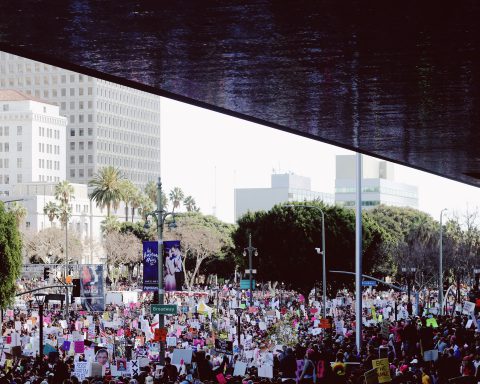
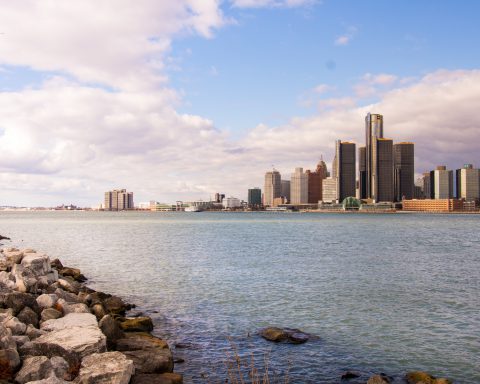
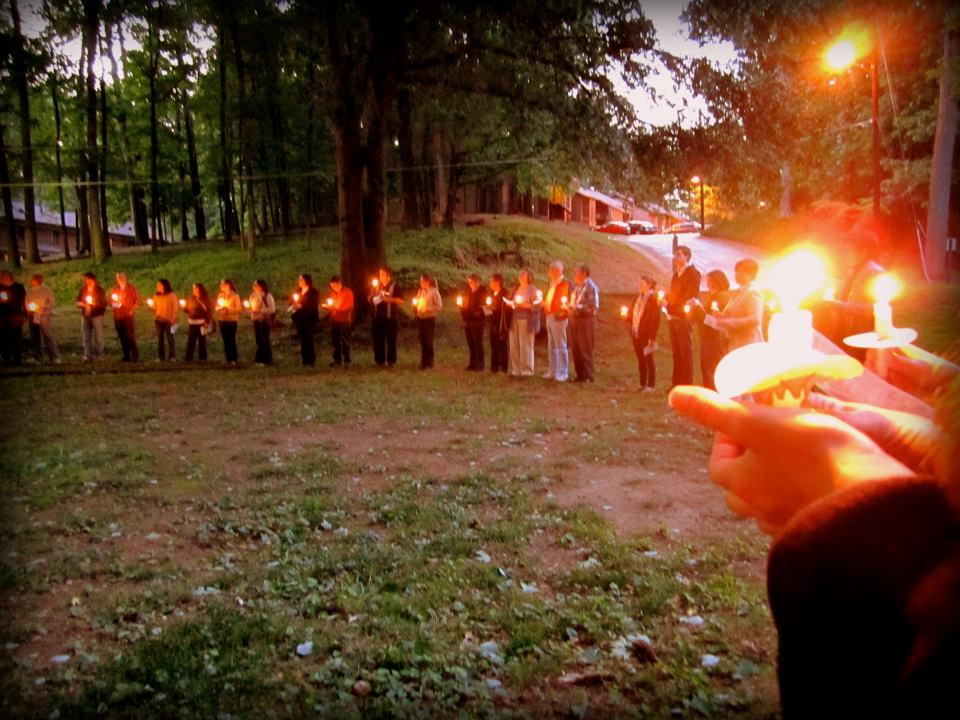
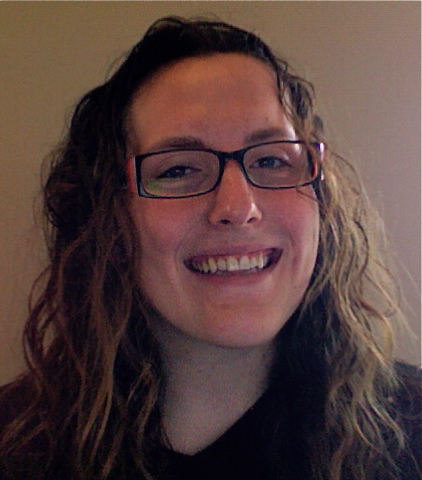
Unbound Social